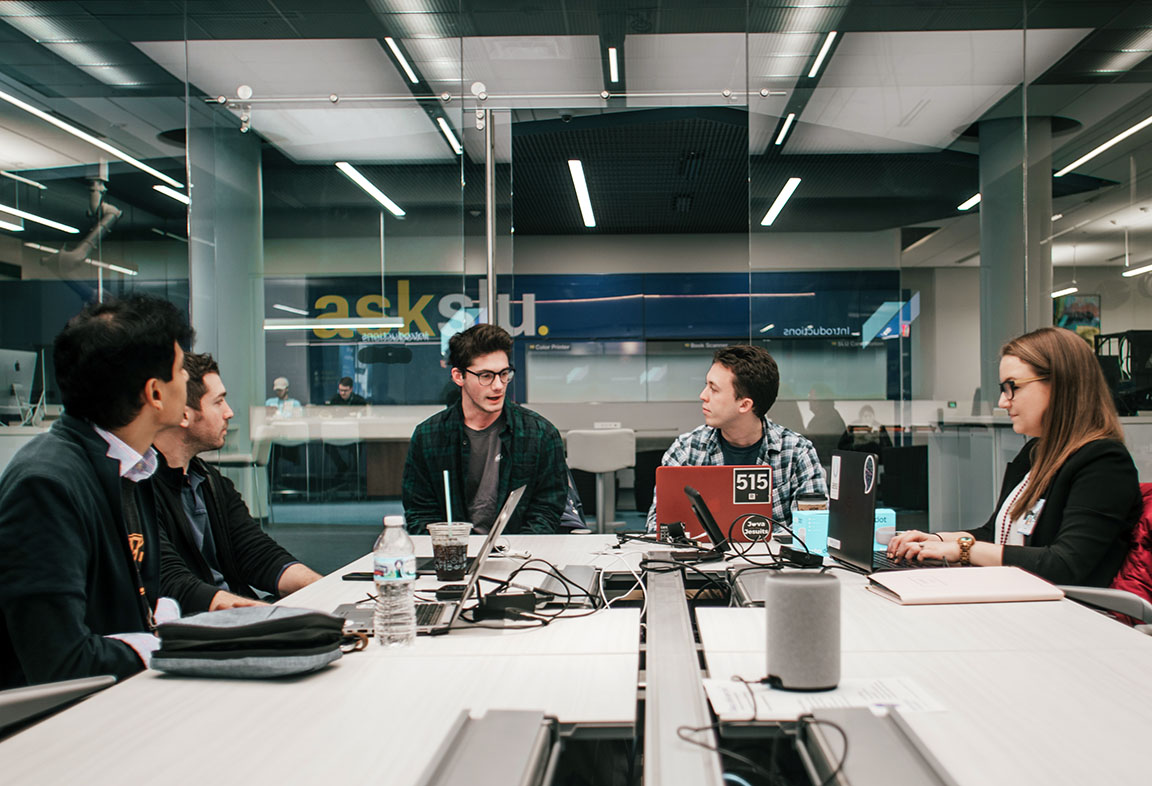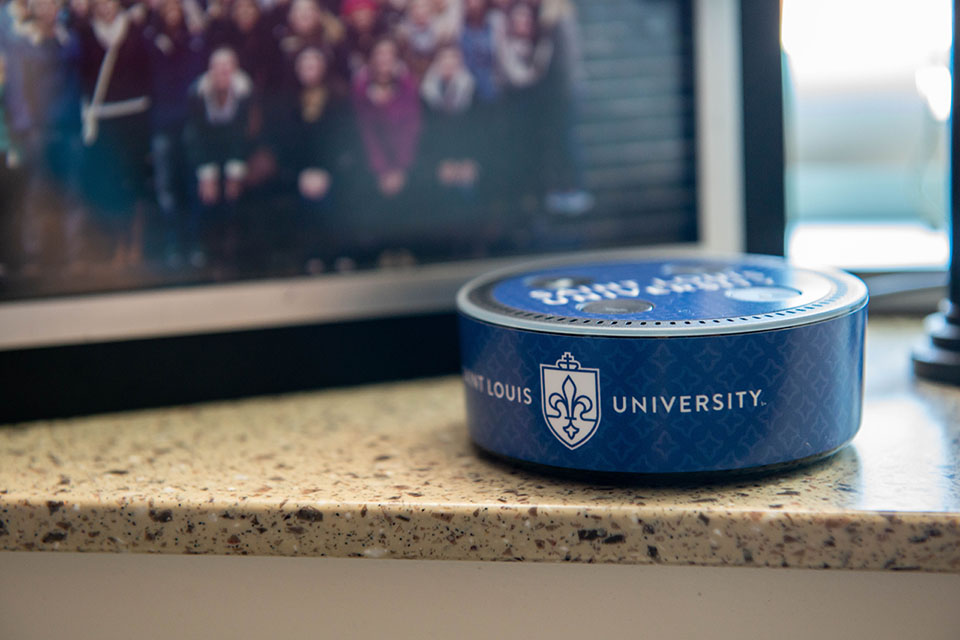Alexa: Can You Solve This Problem?
At Saint Louis University, students living on campus can ask their Echo Dot anything from when the dining hall opens to how to apply for graduation. But as part of a recent challenge, they aren't just consuming information, they are partnering with Amazon and campus experts to actually provide it.
In keeping with SLU’s mission — and students' desire to improve the world around them — groups of Billikens are working with ITS and the University's Department of Innovation to create new Alexa skills that address everything from food waste to mental health.
The Innovative Technology Challenge, launched last fall, also puts students in touch with experts from Amazon during the development period who can answer questions and offer guidance.
Projects will be submitted April 29, 2019, for final approval. Successful projects will receive a cash prize and an invitation to present their skill to a broader audience.
Check out what’s under development and how undergraduate and graduate students across SLU are involved.
Virtual Health Literacy Assistant
What’s the idea? Virtual Health Literacy Assistant , a skill to improve health literacy.
Who’s behind it? Stephen Scroggins, a Ph.D. student in SLU's College for Public Health and Social
Justice's behavioral science and health education program.
What problem does it solve? According to the U.S. Department of Health and Human Services, only 12 percent of
the American population is considered proficiently health literate and up to 77 million
people have difficulty with everyday tasks such as following directions on a prescription
drug label. The Virtual Health Literacy Assistant would allow users to ask questions
in between health care appointments and have those questions sent directly to them
on appointment days. Drawing from a medical dictionary, basic medical laboratory reference
guide, medication reference guide, and other resources, the virtual assistant would
also prompt users with questions they may want to ask their providers.
Language and Culture Learning Skill
What’s the idea? Language and Culture Learning Skill , a project to improve translation software options.
Who’s behind it? SLU undergraduate students Matt Gottsacker (computer science) and Graham Vogt (Spanish).
What problem does it solve? Current Alexa skills about learning languages are mostly based on vocabulary and
recitation. This skill would read a news story in Spanish but pause throughout to
read the translated English version, allowing users to hear Spanish words in context
and improve their verbal skills. Additionally, the news stories would be pulled from
Spanish-speaking countries, so users would learn about the current events and culture
of that country, a perspective that is left out of traditional Alexa language skills.
Alexa Get Your Snacks
What’s the idea? Alexa Get Your Snacks, a tool to improve health and reduce food waste.
Who’s behind it? SLU Master of Public Health students Madhav Narayan, Daniel Eaton and Nojan Rastegar.
What problem does it solve? Not sure what’s for dinner? This project enables Alexa to learn what ingredients
are in the kitchen, then search the internet for recipes. Alexa would then give a
percent match to ingredients on-hand in comparison to each recipe and provide suggestions
on where an ingredient can be found if it isn’t already readily available. The project
aims to improve overall health while also helping to reduce food waste.
Mindly
What’s the idea? Mindly, a skill to improve mental health.
Who’s behind it? SLU public health Ph.D. students Ucheoma Nwaozuru, Thembekile Shato, Steve Scroggins,
Miao Cai, Chisom Obiezu-umeh, Florida Uzoaru and Ikechukwu Eke-Okoro.
What problem does it solve? This team of public health professionals, a physician, and biostatistician proposes
to improve access to mental health services by using Alexa voice-enabled commands
to find nearby providers. Mindly would also feature a virtual mental health assistant
that uses machine learning to provide personalized daily tips and recommendations
on mental health and a chatbot that could provide tailored mental health information,
suggestions or services. To ensure confidentiality, no identifying information about
the user would be collected.
For questions on SLU's Alexa Voice Challenge or more information, contact Angela Schubert.



















